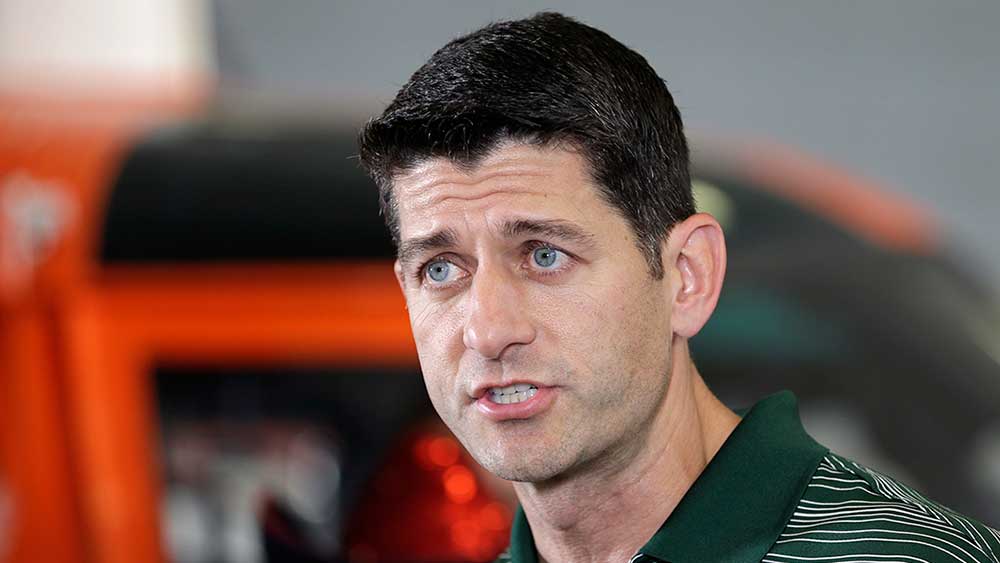Just as President Trump's tax reform push was supposed to start getting serious, Republicans are setting their sights on a tax cut that looks way too be good true.
Experts say that the bare bones plan details, which were leaked to news outlets over the weekend and largely confirmed by the White House on Monday, point to total tax cuts worth $5.5 trillion over 10 years. The framework includes a 20% corporate tax (down from 35%); a top individual tax rate of 35% (now 39.6%); a 25% rate for smaller firms and partnerships whose business income passes through the owners' individual tax return; and a doubling of the standard deduction.
The wish list looks more than a little rich when compared to the $1.5 trillion in net tax cuts that Senate Republican negotiators agreed to target last week. The implication is that there are some $4 trillion worth of offsetting tax cuts, loophole closures and spending cuts that Republicans are ready to embrace at the same time.
Advertisement
While conceivable, so far the only pay-for that seems like a reasonably safe bet for inclusion in the package is elimination of the tax deduction for state and local taxes, which could raise about $1.5 trillion over a decade. That would have a bigger impact on high-tax blue states such as California and New York.
The upshot is that something — about $3 trillion worth of taxes — will have to give, either in tax cuts or offsets, which will slow and complicate the path to tax reform.
Trump is set to head to Indiana on Wednesday to promote his tax plan, but financial markets were hardly bowled over on Monday by early reports, partly because so few details have been figured out. Passage, if it happens, seems likely to slide well into to 2018. Terry Haines, senior political strategist at Evercore ISI wrote Monday that chances of tax cuts going through are about 50%.
The hopeful news for financial markets counting on a tax-driven boost to earnings is that cutting the corporate tax rate is a White House priority that it's reluctant to give ground on. Trump told reporters on Sunday that he still wants the statutory corporate rate cut to 15%, however unlikely.
Trump also seems adamant about bringing back home a few trillion dollars' worth of U.S. corporate profits that have been held overseas to avoid paying tax. A bargain rate on repatriating foreign earnings could provide a windfall to companies like Apple (AAPL), Facebook (FB) and Alphabet (GOOGL), which could use some of the cash for a share buyback.
IBD'S TAKE: Try out premium IBD features for free through Oct. 8. Popular features include exclusive stock lists, IBD Stock Checkup, which ranks the leaders in 197 industry groups based on earnings, sales, margins and stock performance; and The Big Picture daily update of the underlying market trend. On Aug. 22, IBD shifted its market trend gauge to "confirmed uptrend" from "uptrend under pressure," the equivalent of a flashing yellow light turning green.

Shares of companies like CVS (CVS) and Southwest Airlines (LUV) that derive most of their income from within the U.S. also could be winners under tax reform. Homebuilders might be an exception. The National Association of Realtors has warned that killing the state & local tax deduction, while doubling the standard deduction (as both the House GOP and Trump have proposed), could sink home prices by 10%. Under this scenario, the Realtors group says that only about 5% of households would itemize, down from 30%, so the mortgage deduction would offer little incentive for buying a home vs. renting.
Morgan Stanley analysts wrote last week that their base case for tax reform would result in a 25% corporate tax rate that's phased in over several years, along with only modest, temporary individual rate cuts. "We continue to expect a modest deficit expansion that delivers little near-term stimulus," wrote Morgan Stanley's Michael Zezas.
Since Trump has been insisting his tax cuts will help the middle class, a slimmed-down package might end up scrapping tax cuts for higher-income households.
The looming likely failure of ObamaCare repeal this week will further complicate the path to tax reform, noted Greg Valliere, chief political strategist at Horizon Investments. That's because the GOP was counting on savings from cutting spending on health entitlements to help make the Republican fiscal program look more fiscally responsible. So far the GOP has been unable to implement any spending cuts under Trump, and the annual budget deficit is already projected to grow to $1.5 trillion by 2027.
McCain Killed ObamaCare Repeal, Wounded Tax Reform In One Blow
These Are The Biggest Losers From Trump's Tax Reform
Trump's Debt Deal With Democrats Sinks Tax-Cut Hopes: Goldman Sachs
Stocks To Buy And Watch: Top IPOs, Big And Small Caps, Growth Stocks